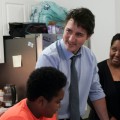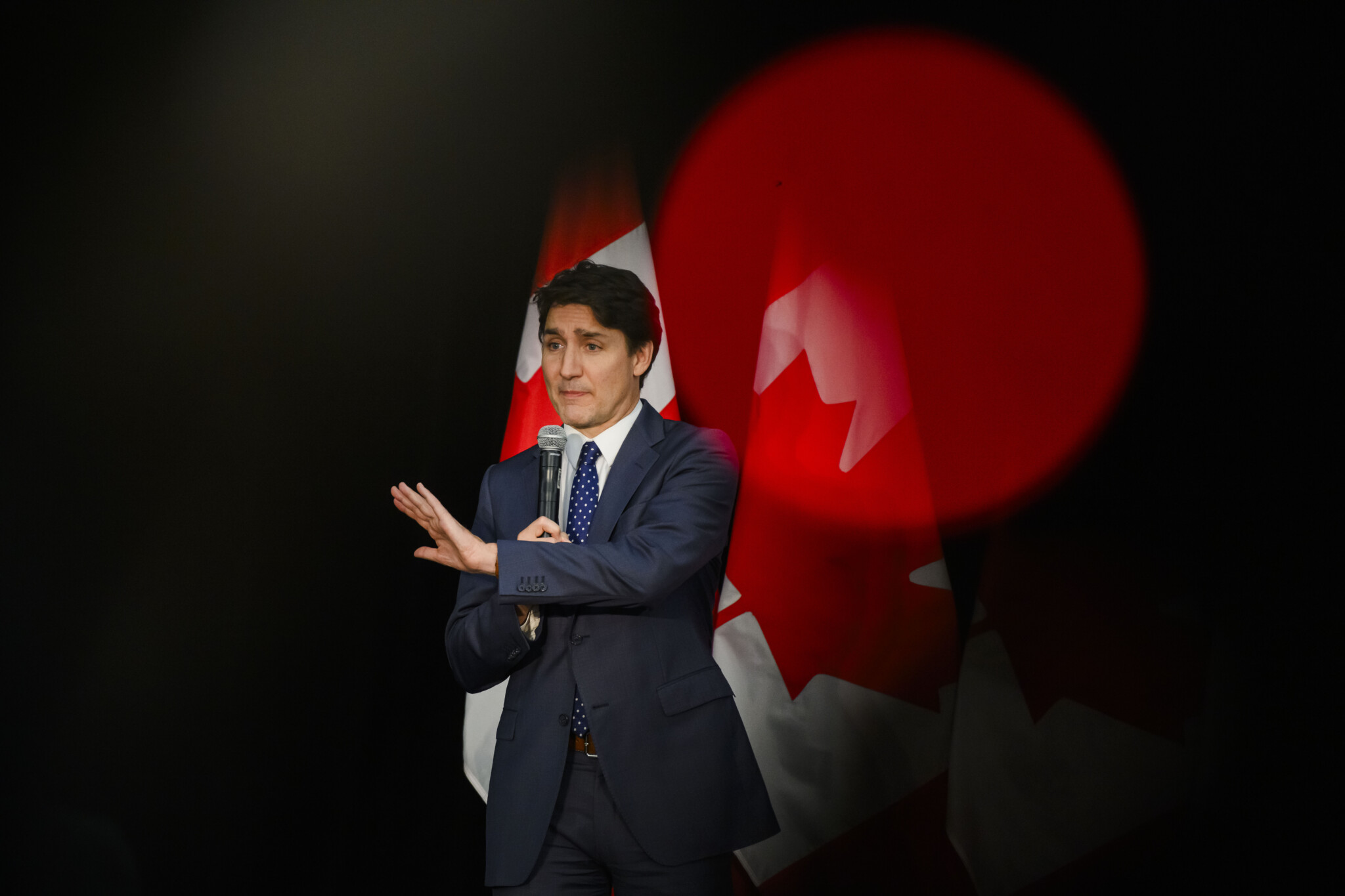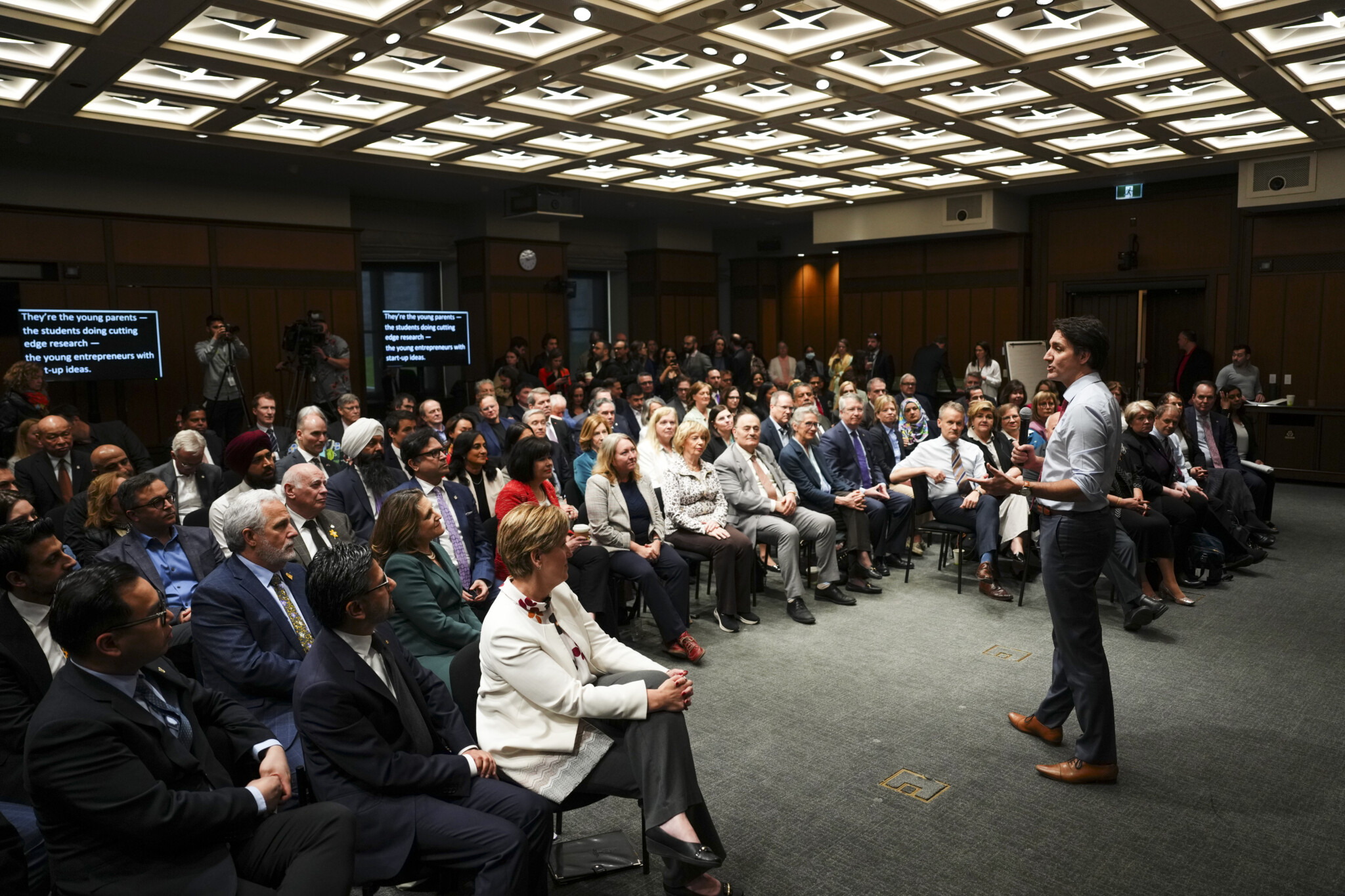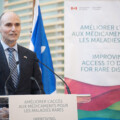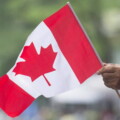
After a “lost decade” of stagnant incomes, rising crime, government failures on basic functions like health care and immigration, and a once-in-a-generation affordability crisis driven by inflation, a majority of Canadians believe that Canada is broken. But decline is a choice, and better public policies are needed to overcome Canada’s many challenges. Kickstart Canada brings together leading voices in academia, think tanks, and business to lay out an optimistic vision for Canada’s future, providing the policy ideas that governments need to ensure a bright future for all Canadians.
On the eve of this year’s Canada Day, Ipsos Global Public Affairs, the well-regarded polling firm, released an extraordinary poll that showed that seven in ten Canadians believe that “Canada is broken.”
“Canada is broken.” It’s a simple idea. But behind it are a set of complex assumptions and theories about the country’s economic trajectory, its state capacity, and even its own sense of self. The debate is further complicated by its inherent political implications. If the country is broken, then presumably someone or something broke it.
If not broken, then in desperate need of a kickstart
Whether the country is broken is ultimately a subjective judgement. The evidence is overwhelming, however, that the economy and other parts of our society are stuck in neutral. Just consider the following list of challenges, which isn’t even exhaustive:
- Real GDP per capita has been in decline for the past few years, and Canadians have seen no real growth in their living standards for the last decade. The OECD now projects that among its nearly 40 members, Canada will experience the slowest real GDP per capita growth out to 2060.
- The median market income for Canadian families has grown by an average of just 0.79 percent annually since 2015. Median government transfers, by contrast (even excluding the pandemic years), have grown by an average of 4.6 percent per year.
- Average worker incomes have increased only a total of 1.6 percent between January 2015 and January 2024, or less than 0.2 percent per year.
- From 2015 to 2022, Canada’s real labour productivity grew by only 4 percent compared to a growth of 7.5 percent between 2006 to 2014. In 1970, Canadian workers were 85 percent as productive as their American counterparts. In 2022, it was just 72 percent.
- Inflation is raising costs substantially. Since February 2020, rent is up 20 percent, food is up 23 percent, gasoline is up 30 percent, and mortgage interest costs are up 43 percent. Across the whole of Canada’s postwar history, no year has seen a faster decline in the average family’s “food purchasing power” than 2022. The second-largest decline was 2023.
- Wait times for surgical procedures reached 27.2 weeks in 2022, the longest in the last 30 years, and about 14 percent of Canadians aged 12 and older—approximately 4.6 million people—did not have a regular health-care provider in 2022. Likewise, wait times for families looking for child care are getting longer and longer.
- Population growth fueled by immigration has expanded dramatically since 2015 and it is putting pressure on housing affordability. Consider that in the last year Canada’s population grew by 1.27 million people (or 3.2 percent), which is the largest gain since 1956 and more than double the historic mean. Net international migration was responsible for 97 percent of Canada’s dramatic population growth, with 65 percent of total population growth coming from temporary migration.
- Buying a home is now out of reach for many Canadians. Over the past twenty years, Canadian home prices are up by more than 140 percent on a real basis. The average home price nationally increased by nearly 50 percent since the COVID-19 pandemic alone.
- Then there’s been the more than a decade-high increase in violent crime, a 30-year high in the murder rate, and daily evidence of urban disorder, including the obvious failures of the harm-reduction model to deal with drugs and substance abuse.
- The federal government’s employment footprint is now 40 percent larger under the Trudeau government, spending on third-party consultants has grown by one-third since 2017 alone, and yet we’ve seen various cases of “government failure” including passport delays, immigration backlogs, and the serious degradation of our military capacity.
The upshot: our economy is stagnant. Our cities are increasingly marked by crime and disorder. Our governments are failing on basic functions like health care and immigration. A malaise hangs over our culture.
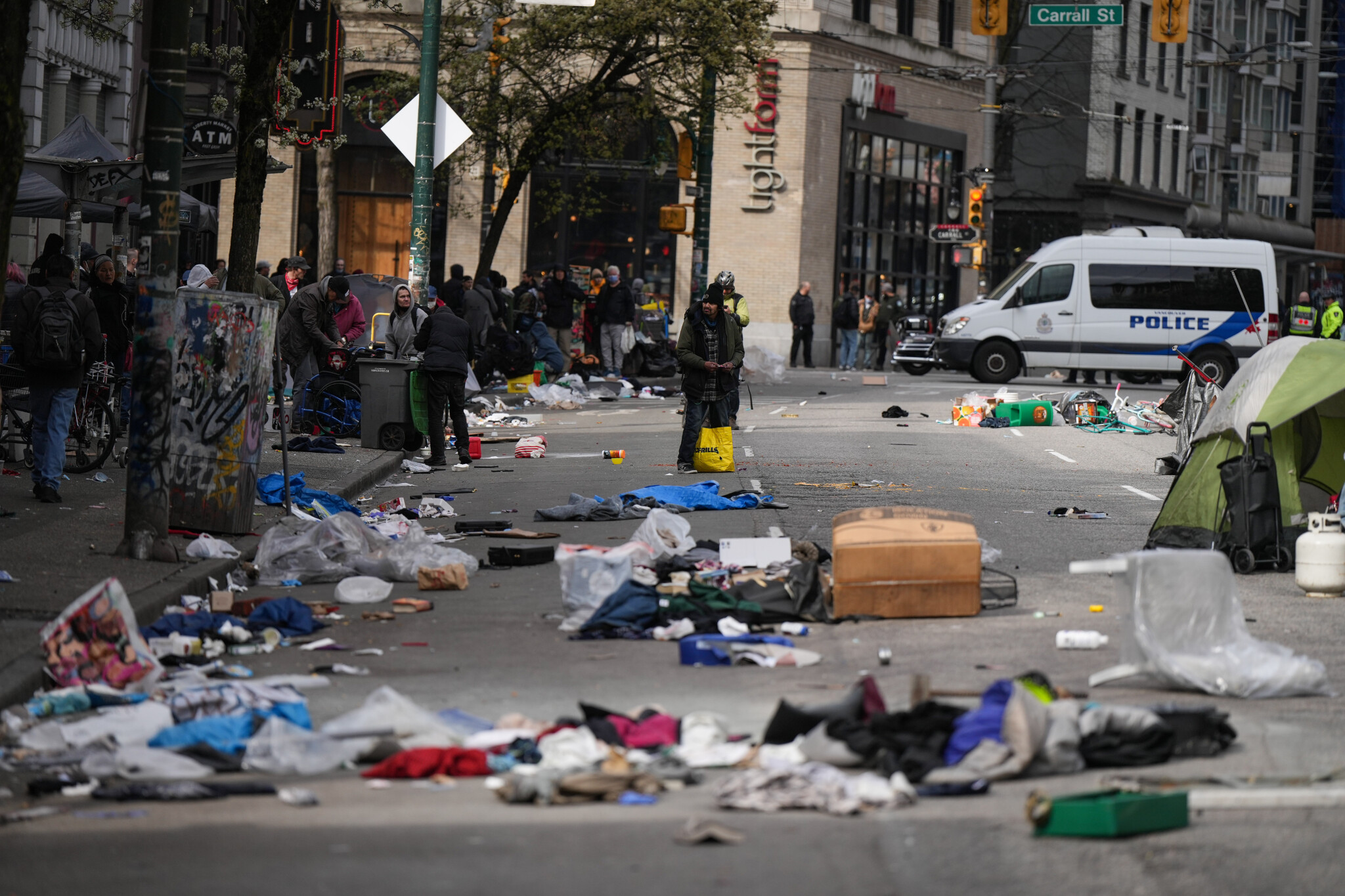
Belongings are scattered on the street as city workers work to clear an encampment on East Hastings Street in the Downtown Eastside of Vancouver, B.C., April 5, 2023. Darryl Dyck/The Canadian Press.
“Decline is a choice”
There are various factors behind these trends. Some of them are new. Others are more longstanding. Some reflect broader global developments. Others are more unique to Canada in substance or at least scale.
It’s wrong however to think that we have no control over them. Choices matter. Public policy has played some role in producing these outcomes.
Take housing for instance. Government constraints on housing supply on the one hand and its boosting of demand in the form of higher permanent and temporary immigration on the other hand are principally responsible for Canada’s current housing affordability crisis. It’s a reminder that we have a greater influence (for better or worse) over our circumstances.
In 2009, the late Charles Krauthammer gave a speech famously titled “Decline is a choice” in which he argued that if one simply answered “yes or no” to the question of whether America was in decline, he or she would be wrong. His point was that both answers implied there is some “pre-determined inevitable trajectory, the result of uncontrollable external forces.”
But that’s not how the world works. History, as Krauthammer’s colleague and friend George Will likes to say, isn’t a proper noun with a capital “H.” It doesn’t operate according to its “own unfolding logic.” It’s an expression of individual and collective agency.
We agree.
So much of our political debates these days assume that much of Canada’s challenges are beyond our control. Global inflation, conflict in Europe and the Middle East, the pandemic—these are all issues that extend beyond national borders and our control. But how we respond to global challenges is firmly within our control, and Canada’s relative underperformance demonstrates that we can influence our outcomes in a better direction.
This is the most redeeming part: if bad choices are to blame for our poor outcomes, then better choices have the power to improve them.
We believe Canada urgently needs to find better solutions to the economic and social challenges facing the country. If we’ve indeed experienced “a lost decade” as we’ve previously argued, we cannot afford for it to become two lost decades. We must be seized by the overriding objective of kickstarting Canada’s economy, reforming its government, and reviving the country’s self-confidence.
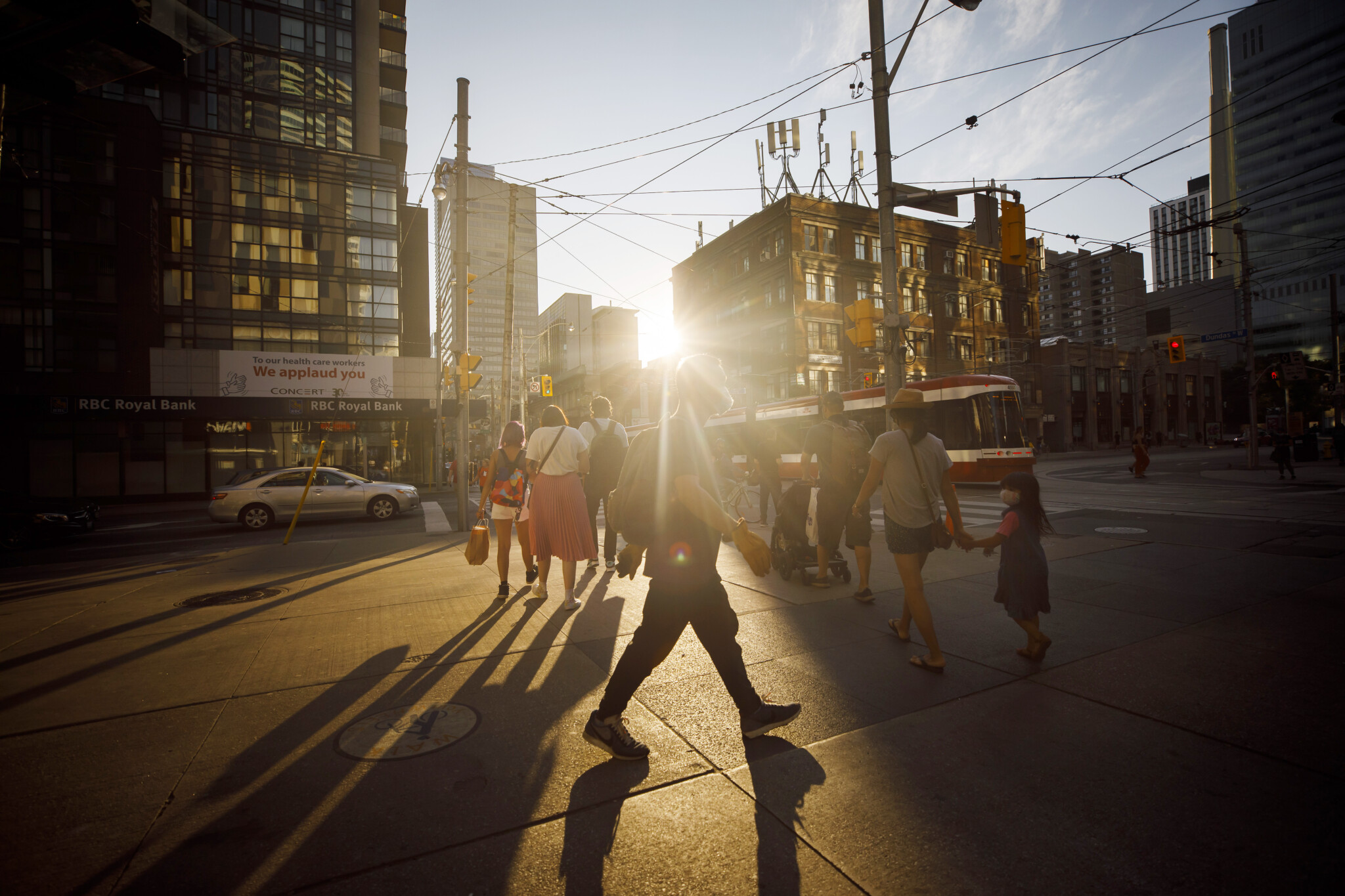
People walk through rays of evening light in downtown Toronto, Thursday, Aug. 13, 2020. Cole Burston/The Canadian Press.
Kickstart Canada
The Hub is therefore pleased to launch a new series, Kickstart Canada, to bring to bear some of Canada’s brightest minds and most innovative thinkers on the goal of setting the country on a better course. Each week between now and the return of Parliament in mid-September, we’ll publish commentaries that put forward ambitious yet practical ideas to address the challenges that are holding us back.
There is no shortage of topics to tackle. Tax reform, pro-competition reform, and cleaning up a sclerotic and overreaching regulatory regime—all of these areas are needed in order to boost Canada’s stagnant economy. Likewise, from fortifying our democracy from foreign interference to reforming defence procurement and boosting military spending to rethinking Canadian foreign policy for the Cold War II, Canada’s defence and security capacity must be systemically strengthened. We plan to tackle all of these issues and more, including our urban decay and challenges with drugs and crime; issues that will be well familiar to Hub readers.
You should expect to hear from some familiar voices as well as some new ones, some from academia and think tanks, and others who are business and thought leaders in their respective fields. Expect them to be as thoughtful as they are thought-provoking, and informed by evidence and undergirded by clear, principled thinking.
While we cannot commit to a series devoid of gloom, the purpose isn’t to relitigate what’s wrong so much as it is to build a catalogue of concrete ideas to make things right. Kickstart Canada will lay out an optimistic vision for Canada’s future and provide the intellectual rocket fuel to reach it.
When the federal parliament returns in the fall, we hope that policymakers will draw on the series’s body of recommendations. If the current government declines that opportunity, then perhaps this series can provide a future government with a blueprint of bold yet attainable policy ideas for after the next election.
We thank Hub readers in advance for your engagement with this important project over Canada’s beautiful yet too brief summer. It’s your engagement and participation that will help to determine if this series succeeds in its ultimate ambition: kickstarting Canada.


